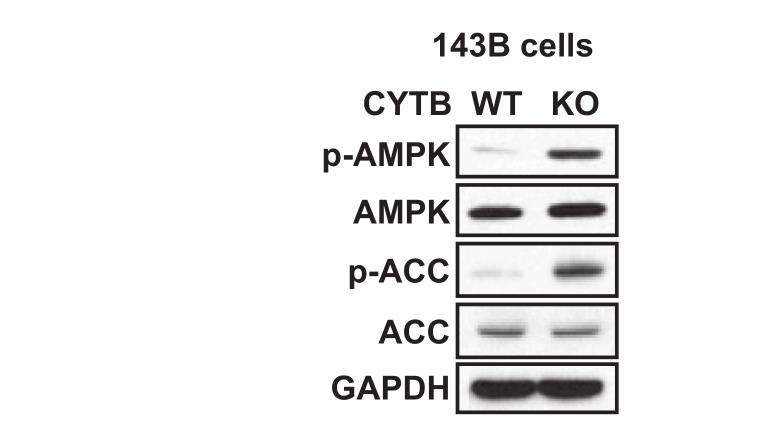
Mitochondrial dysfunction activates the AMPK signaling and autophagy to promote cell survival


Autophagy is a cellular self-eating process essential for stress response and maintaining tissue homeostasis by lysosomal degradation of unwanted or damaged proteins and or-ganelles. Here, we show that cells with defective mitochondria induce autophagy to promote cell survival through activating the AMPK pathway. Loss of mitochondrial complex III protein cytochrome b activates the AMPK signaling and induced autophagy. Inhibiting mitochondria energetics by mitochondria-targeted agents activates the AMPK signaling and induced autophagy. Genetic inhibition of AMPK inhibits autophagy induction in cells with defective mitochondria, while genetic inhibition of autophagy has no effect on AMPK activation. Mitochondria dysfunction has no effect of DNA repair of UV-induced DNA damage. However, mitochondria dysfunction sensitizes cells to apoptosis induced by UV radiation. Genetic inhibition of autophagy or AMPK sensitized cells to apoptosis in cells with defective mitochondria. Our results demonstrate that AMPK and autophagy senses mitochondria dysfunction and serves as a mechanism for survival. Our findings may provide new insights into the interplay between mitochondria function and autophagy process in maintaining tissue homeostasis, and suggest that this interaction may play important roles in diseases such as cancer and neurodegeneration.
